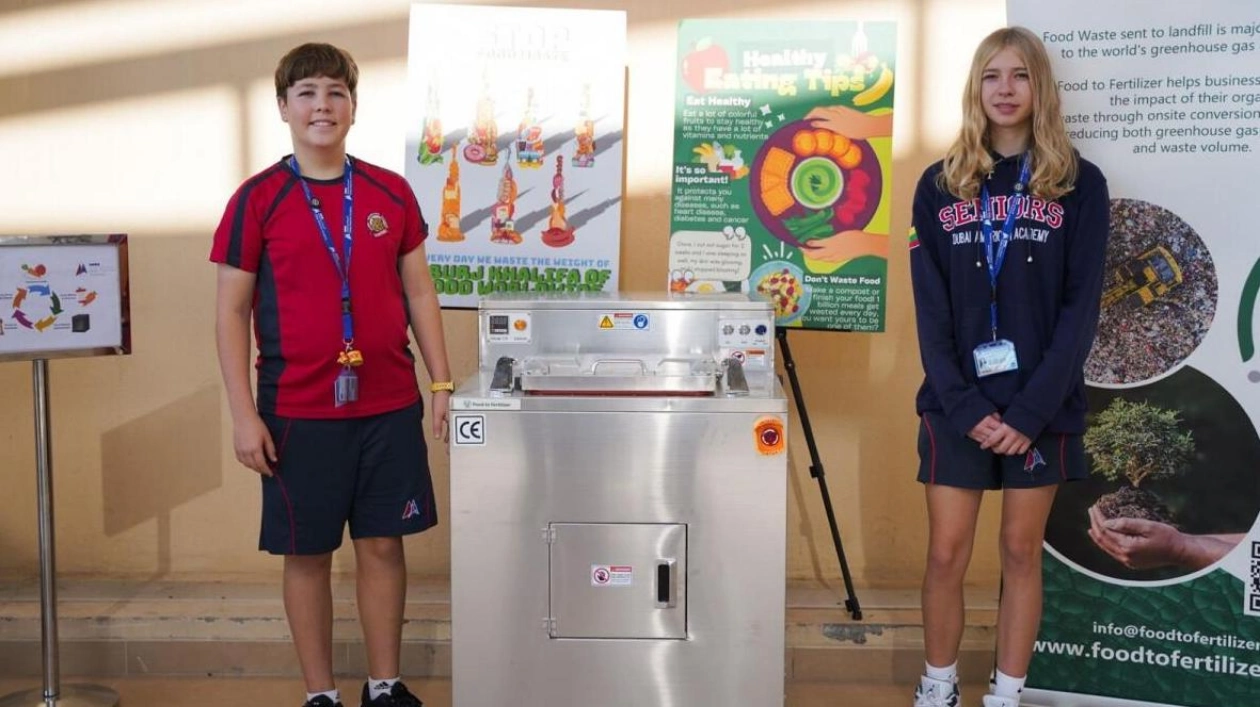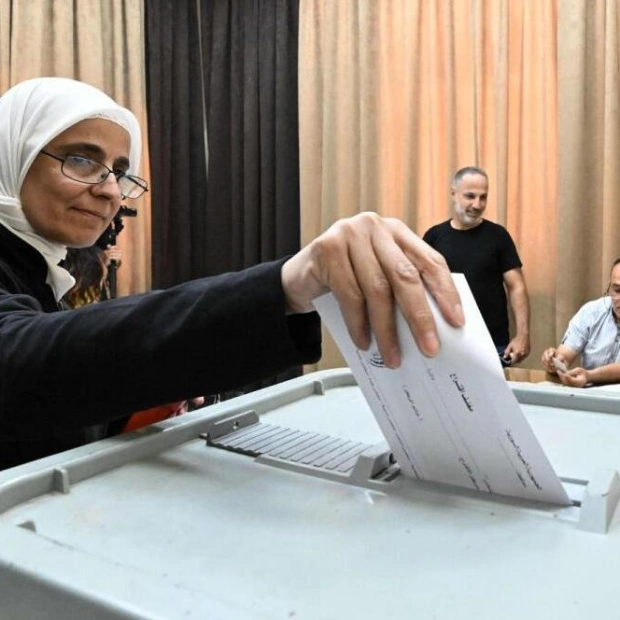Leading the way in sustainability efforts, a school in Dubai has introduced a state-of-the-art 'food-to-fertiliser machine' on its campus. The composter at Dubai American Academy (DAA) is converting food scraps—vegetables, fruits, and other edible waste—from the school cafeteria into nutrient-rich compost, aiding the school in reducing its carbon footprint and promoting eco-friendly living. This initiative also aligns with Dubai Municipality's objective of achieving a 50% reduction in food waste by 2030.
Speaking to Khaleej Times, Angela Hargett, High School English Teacher and Eco Committee convener, stated, 'We compost various organic materials such as vegetables, fruits, and other edibles, without using oil. The composter transforms this waste into valuable compost, significantly decreasing the amount of waste sent to landfills.' This initiative makes DAA the first GEMS school to implement composting. Additionally, the school has an eco-garden managed by an eco-committee, where all the compost is utilized. Currently, they are experimenting to determine which vegetables grow best in their garden. Once successful, they plan to share the produce with their parent community.
When asked if the compost pile is odour-free, Hargett added, 'It’s quite amusing—it has a lovely smell! Recently, it had a fruity aroma, but as it decomposes, it takes on a coffee-like fragrance. Surprisingly, it’s quite pleasant.'
'Engaging the school community' The composter is part of a broader green initiative. Over the past three years, the school has been working towards becoming more eco-conscious, reducing plastic bottles, minimizing paper usage, and establishing an eco-garden. 'What we’ve been doing over the last two to three years is setting up to become a sustainable school. We’re quite advanced. When I joined the school, I felt a need for sustainability. This year, we are applying for the green flag. We’ve had a garden for three years now and our goal is to reduce everything. We’ve reduced our paper usage and eliminated plastic bottles in school. The composter is the next step. The canteen produces a lot of waste, so this is our way of not sending it to the landfill, but using it within our community and on the school grounds. We are doing our best to cut our carbon footprint,' explained Hargett.
She emphasized that the aim is to make this a school-wide initiative, educating students on the importance of waste reduction, composting, and sustainability both at home and in their communities. 'We took our Grade 5 students to show them how it works, and they were all quite fascinated.'
How does the machine work? Weighing nearly 200 kilograms, the food-to-fertiliser machine takes approximately 10 hours to complete a single cycle.
Javad Rzayev, Grade 12 student and President of the Eco Community at DAA, said, 'Introducing this composter two weeks ago marks a significant step toward reducing food waste on our campus.' He added, 'Each cycle can process up to 60 kilograms of food waste, saving around 114 kilograms of carbon dioxide emissions. It serves three cafeterias in our school. We also have an eco-garden on campus, where we conduct various initiatives and workshops, planting different types of vegetation using soil enriched with this fertiliser. This enables us to adopt more sustainable practices on campus.'
Source link: https://www.khaleejtimes.com






